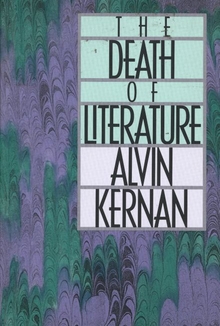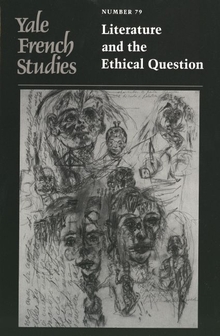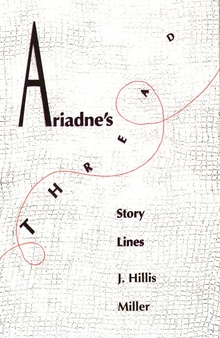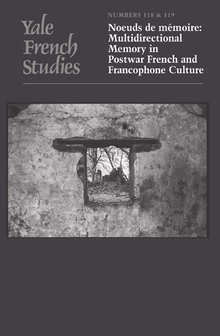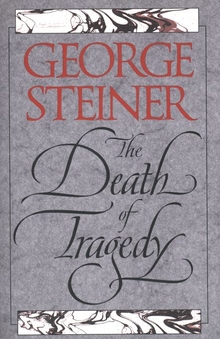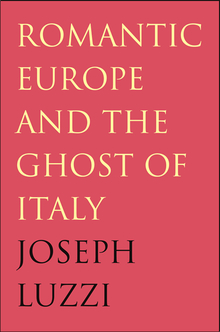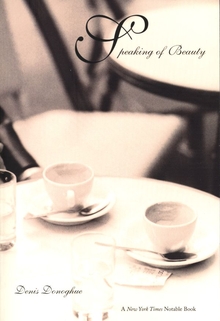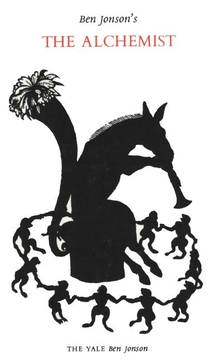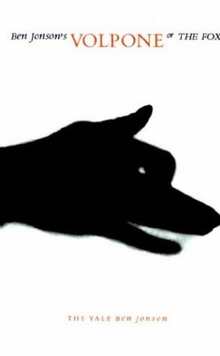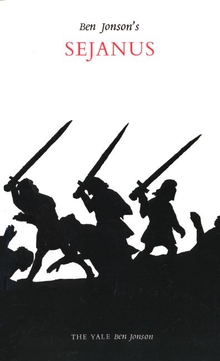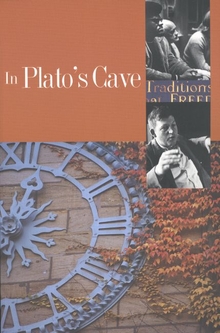The Death of Literature
WARNING
You are viewing an older version of the Yalebooks website. Please visit out new website with more updated information and a better user experience: https://www.yalebooks.com
Alvin Kernan
Literature has passed through a crisis of confidence in recent decades—a radical questioning of its traditional values and its importance to humanity. In this witty and eloquent book, a distinguished professor of humanities looks at some of the agents that have contributed to literature's demise and ponders whether its vitality can be restored in the changing circumstances of late twentieth-century culture.
Other critics, such as E. D. Hirsch and Allan Bloom, have also explored the growing cultural illiteracy of modern society. Alvin Kernan probes deeper, relating the death of literature to potent forces in our postindustrial world—most obviously, the technological revolution that is rapidly transforming a print to an electronic culture, replacing the authority of the written word with the authority of television, film, and computer screens. The turn taken by literary criticism itself, in deconstructing traditional literature and declaring it void of meaning in itself, and in focusing on what are described as its ideological biases against women and nonwhites, has speeded the disintegration. Recent legal debates about copyright, plagiarism, and political patronage of the arts have exposed the greed and self-interest at work under the old romantic images of the imaginative creative artist and the work of art as a perfect, unchanging icon.
Kernan describes a number of the crossroads where literature and society have met and literature has failed to stand up. He discusses the high comedy of the obscenity trial in England against Lady Chatterley's Lover, in which the British literary establishment vainly tried to define literature. He takes alarmed looks at such agents of literary disintegration as schools where children who watch television eight hours a day can't read, decisions about who chooses and defines the words included in dictionaries, faculty fights about the establishment of new departments and categories of study, and courtrooms where criminals try to profit from bestselling books about their crimes.
According to Kernan, traditional literature is ceasing to be legitimate or useful in these changed social surroundings. What is needed, he says, if it is any longer possible in electronic culture, is a conception of literature that fits in some positive way with the new ethos of post-industrialism, plausibly claiming a place of importance both to individual lives and to society as a whole for the best kind of writing.
"No other book on the state of literature today can outdo this profound and lively exposé. The book is alarming and reassuring at the same time. Kernan shows how changed societal structures can change the meaning and function of what we have called literature. Kernan shows how literature is never an independent venture but always unwittingly registers in depth the influence of technological, political, commercial, familial, religious, and other institutions, even when it is attacking such institutions head-on. The same is true of literary interpretation and theory. He shows that deconstruction is no more independent than other schools of criticism: at root it is a continuation of movements that preceded it."—Walter J. Ong, Professor of Humanities Emeritus, St. Louis University
"He's a delight to read. The analyses of celebrated censorship trials, of historical changes in the means of production and distribution of literature, and of print, literacy, and mass-produced art are worth the price of the book and leave the reader avid for more."—Booklist
"Some subtle chamber music noteworthy for its cunning modulations and contrasting voices. . . . Witty and understated pages. . . . Kernan's tale is told with such discreet charm that it's easy to fail to see that his unwillingness to promote cheap answers and hopeful delusions is balanced by the force of his own example. Eloquent, witty, sage, and fair, The Death of Literature bears the message of hope in the only direction it can go—to those who share Kernan's concern with the life of true words in our time."—Thomas D'Evelyn, Christian Science Monitor
"A lively, provocative and often witty look at the contemporary cultural situation and aspects of the changing social context. . . . that are profoundly altering our way of reading and understanding books."—UPI
"This is an eloquent, measured, brave and absolutely necessary book."—Dan Cryer, Newsday
"[A] fascinating and provocative new study. . . . [Kernan] sets forth a highly persuasive argument against deconstruction. . . . This is a highly absorbing book, a book that vigorously and intelligently addresses the question of literature's precarious place in a changing world."—Michiko Kakutani, New York Times
"Mr. Kernan's scholarship is impressive, and many of his thoughts on the history of language and literature are quite edifying."—Joe Queenan, Wall Street Journal
"Instructive historical-intellectual entertainment for those seriously interested in the fate of literature in our age. The gracefully learned Kernan (Emeritus Professor of Humanities/Princeton) brings on his own bad-news message, true or false, with little dogma or shrillness. . . . A guess is that his capacious, historically nimble, and informative book will be read as much for its own interest and literary persuasiveness as for the sealed note of doom it claims to bring."—Kirkus Reviews
"A most readable, intelligent analysis of the state of American/European literature in the throes of fin-de-siecle malaise. . . . The book is the result of decades of thought on the subject."—Helle Bering-Jensen, Washington Times
"This is the real stuff, boy, intellectual argumentation of such authority and conciseness that it makes your chest constrict to consider its charges, the chief one being that romantic and modernist literature, as we have known it for 200 years, is dead, dead, dead."—Roger Miller, Milwaukee Journal
"Alvin Kernan has packed enough theses into this short, dense book to fill many a larger volume, and a brief review can barely mention—much less do justice to—only a handful of them. . . . What is remarkable is not that Kernan does so much but that he does so much of it well; it the steadily rising tide of books about the collapse of American literary and artistic culture, The Death of Literature is the most comprehensive, thoughtful and (to my way of thinking) right-minded I have thus far encountered. . . . Kernan's analysis could scarcely be more timely."—Jonathan Yardley, Washington Post Book World
"Alvin Kernan's book is worthy of attention by anyone who takes seriously the notion that literature offers a path to knowledge. The retired Princeton professor has written a timely study not only of the current standing of literary art, but an intelligent analysis of a still-not understood shift in control over the power of the word."—William Robertson, Knight-Ridder Newspapers
"This is a book that requires thought."—Glenn Giffin, Rocky Mountain News
"A meditation upon what has been established—or, at least, asserted—by the brightest young literary scholars now working in the best universities. . . . The first attempt to put the latest findings of literary scholarship into some kind of order, to arrange them into a coherent view, and it is a highly intelligent attempt to do so."—D. G. Myers, New Criterion
"Kernan is illuminating on the assumptions behind Johnson's dictionary, a prime exemplar of book culture."—Wendy Steiner, Times Literary Supplement
"In a witty, discursive style, Kernan charts literature's relatively recent rise . . . and the complicated reasons for its fall. . . . Controversial, insightful, and frightening, The Death of Literature is required reading for anyone concerned with the state of late-twentieth-century literature."—Ellen Donohue, Wilson Library Bulletin
"Provocative, insightful, thoroughly readable, and profoundly unsettling. . . . Kernan is a wry, skeptical, but not cynical commentator."—English Journal
"The Death of Literature is a useful, often insightful commentary on current thought on criticism, literature, and society. It is also beautifully jacketed in heavy marbled paper, sewn in signatures, and encapsulated in an extensive and helpful bibliography. It will stimulate the intellect of anyone who has the self-discipline to turn off the television or computer."—Robert Hauptman, World Literature Today
"This is nutritious reading."—Walter E. Broman, Philosophy and Literature
"In standing athwart the postmodern program, Alvin Kernan has done a magnificent and magnanimous thing. . . . His cri de coeur is moving and inspiring, and it is good for us that he has given utterance to it. . . . This book is . . . an expression of balance, moderation, good sense, and even compassion."—Edward E. Ericson, Jr., University Bookman
"An eloquent outburst against the non-print modern world of electronic data storage and retrieval. . . . [Kernan's writing] ought to command the attention of students of the Renaissance, among others."—L. R. N. Ashley, Bibliotheque d'Humanisme et Renaissance
"[A] candid, contentious and eloquent book."—Phillip K. Tompkins, Quarterly Journal of Speech
"The book is compelling because it deals so well with a subject that immediately touches our lives; it is appealing because it is informed by the presence of an author who knows that for good and for ill, he has had the fortune to witness the beginning of a great change in human culture."—Marcia Jacobson, Southern Humanities Review
ISBN: 9780300052381
Publication Date: September 10, 1992
Publication Date: September 10, 1992
239 pages, 5 1/2 x 8 1/4

